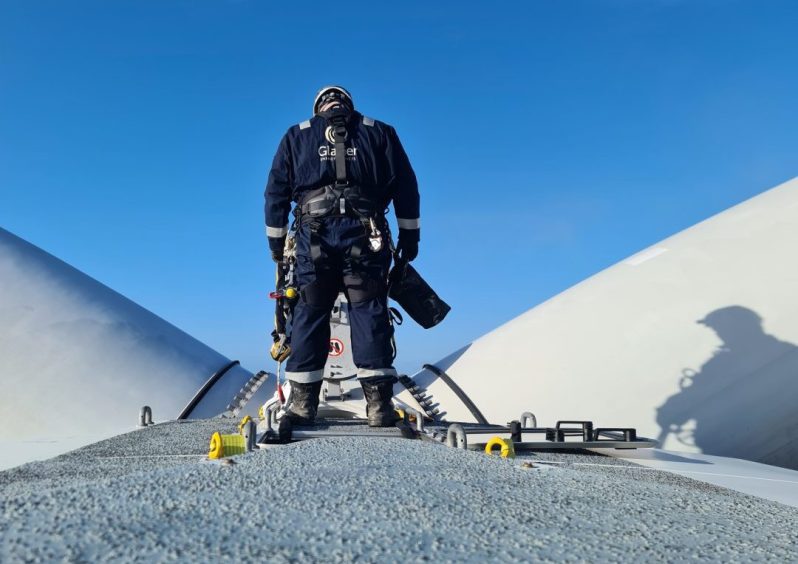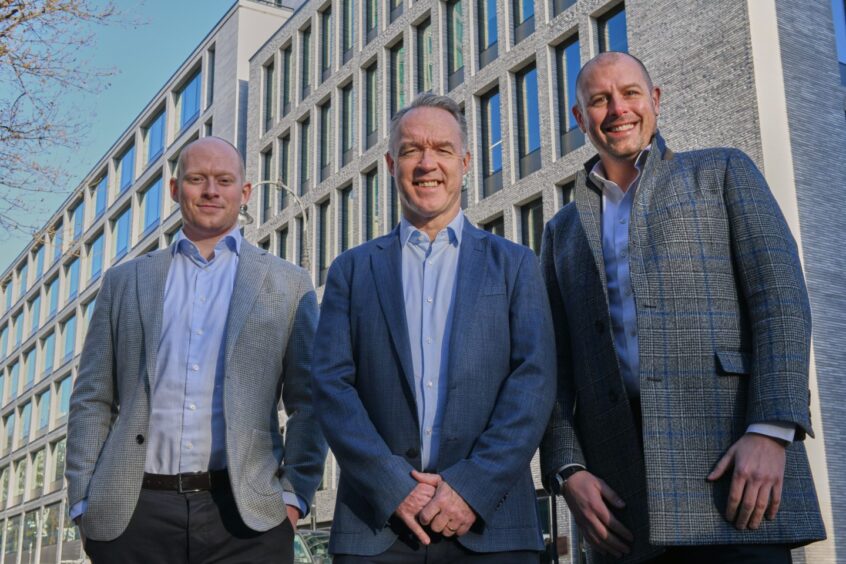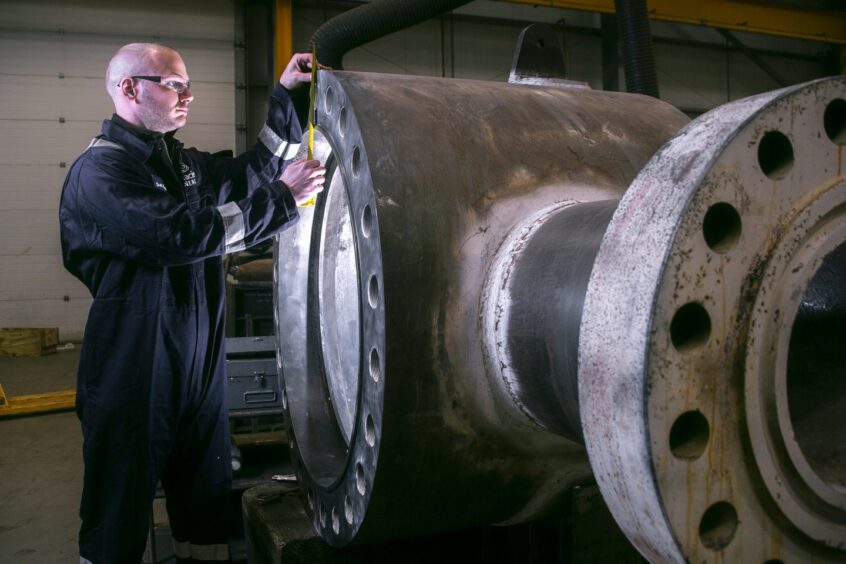
Energised by a buyout deal and energy transition appetite, Glacier Energy has ambitious plans to scale up its northeast manufacturing operation and double its workforce.
Last week the Aberdeen-headquartered energy services firm announced a buyout by Averroes Capital, in a deal that will offer it capital to invest in new facilities and hundreds of new roles over the next five years.
The value of the transaction was not disclosed, though Averroes solely focuses on investments of between £15 million and £40m of equity. The move saw the exit of Glacier Energy’s previous investors, Maven Capital and Simmons Parallel Energy Fund, after more than a decade supporting the business since its inception in 2011.
Speaking with Energy Voice in the wake of the announcement, Glacier group CEO Scott Martin was energised by the company’s growth prospects.
“The market environment is good in terms of conventional energies, plus all this really fast-paced movement on the renewable side of things as well.”
Glacier serves a range of markets including wind, oil and gas, nuclear and chemicals, but is looking increasingly towards the energy transition, leveraging its specialisms in heat transfer, machining, welding and testing and inspection.
“There’s massive opportunities emerging in hydrogen, carbon capture and energy storage. We’re quoting really heavily into upcoming future projects,” Mr Martin said.
The firm is already working with Track 1 CCUS clusters HyNet North West and the East Coast, as well as the Acorn Cluster, according to its website.
“We’re at that tipping point where to really capitalise on that we want access to growth capital to bring certain key roles into the business as we step up the growth campaign.”
He says the firm is on track to achieve revenues of over £30m this financial year with a headline plan to double that within the next three to four years.
With this will come a major recruitment drive: “We’re trying to double the revenues so we’re going to broadly need double the number of people,” he added.
That will include senior and strategic roles, such as a new CFO based in the Granite City, amid wider strengthening of the board and management team.
Glacier currently employs just over 210 employees across the group, of which about 50 are based at its Aberdeen HQ.
Manufacturing scale-up
Mr Martin made clear that the northeast will be key to those expansion plans, particularly in manufacturing, where the firm hopes to deploy its engineering expertise to serial production of critical components for CCUS and hydrogen, such as pressure vessels and storage tanks.
“A lot of stuff we do at the moment is quite bespoke… but the market is changing and we see a requirement for making multi-volumes of the same thing.”
“We’ll need additional facilities so we are putting a business plan together for volume manufacturing, as we call it, where we’ve a workshop facility producing reasonably large quantities of something like a hydrogen storage vessel, for example.”
The plan is still under development, but Mr Martin said Aberdeen’s growing Energy Transition Zone (ETZ) “is certainly one of the locations we’re seriously considering.”
Located in the south of Aberdeen, the ETZ is set to adopt a campus model, with distinct zones to combine firms and expertise working in sectors such as hydrogen and wind.
“Nothing is decided yet, but we’ll be in dialogue with them to look at potentially capitalising on the quite exciting things happen happening there in Aberdeen.”
A new corporate HQ building in the city is also on the cards.
With that comes plans to invest in younger talent. Glacier is already bringing trainees and apprentices into its inspection business and its northeast workshop in Aberdeen, but hopes to establish a technician training school in the Central Belt as part its growth plans as well.
“It’s a critical point – if we can get young people in and get them trained up in the way we want them to work, we see that as a key thing,” he added.
Subsea capex boost
Alongside clean energy, he said the past 18 months has seen “a solid return of activity” to its oil and gas work, as post-Covid maintenance and repair programmes pick up.
Meanwhile the firm’s Glasgow-based weld overlay business has felt the benefit of rising spending in the global subsea market.
“There was a bit of a lag there…but that’s really coming back strongly now. We support global projects there – we’re doing the manufacturing work in Scotland and the final components will go internationally – and that’s really kicked on quite strongly.”
M&A drive
While much of the group’s investment will be aimed at facilities and capability, Mr Martin says there is scope for further acquisitions to drive growth.
“Glacier grew in the early days through several acquisitions as we built the group up – from 2011 through 2014/15, we did about four acquisitions,” he explained.
“I’d like to restart that – maybe not to the same kind of volume, but we are looking at certain strategic businesses that can accelerate that growth, so we’d look to get acquisition activity restarted with the new investors.”
In particular he intends to add to the company’s existing wind inspection capabilities by taking on further services, enabling Glacier to support asset operators from inspection right through to remedial action and repair work.
“We’re doing some of that organically at the moment, but I think we need to accelerate that area by acquisition,” he noted.
As for the rest of 2024, Mr Martin is hopeful a strong orderbook and growing demand will see turnover up “at least 20%” on the most recent financial year.
“We’ve already got good momentum at the moment – we’re trading quite strongly, our orderbook’s been up at record levels of about £12m,” he added.
“It’s quite strongly positioned going into the new financial year so we’re hoping for a decent step up.”
Recommended for you

 © Supplied by Glacier Energy
© Supplied by Glacier Energy © Supplied by Glacier Energy
© Supplied by Glacier Energy